Hisense smart window air conditioner review
Hisense Smart Air Conditioner: Specs
BTUs: 8,000, 14000
Room size: 350, 700
Energy Efficiency Ratio: 15.4
Works with: Alexa, Google Assistant
The in-wall air conditioner in my 3-year-old’s room isn’t overly loud, but due to its age, makes enough noise to upset her enough that she makes us turn it off when she goes to sleep. On hot nights, we have had to make sure her windows are open and the ceiling fan on so that there’s some air circulation, but she still goes to bed in a stifling room.
Ever since I installed the Hisense Smart Air conditioner in her room, she’s been sleeping like a baby. That’s because this model has an ultra-quiet mode that barely makes a sound. The same inverter technology that makes it quiet also makes this window A/C very efficient, too, so I’ve been resting easy in the knowledge I’m not racking up my electricity bill.
Read the rest of this Hisense Smart Air conditioner review to see why it made our list of the best window air conditioners.
Hisense Smart Air Conditioner review: Price and availability
The Hisense smart air conditioner (model AW0822TW1W) is available for $399 exclusively through Lowes.
There’s a nearly identical model (AW0822CW1W) that’s just $299, but it lacks the inverter technology used in the model we tested. Consequently, it does not have an ultra-quiet mode, and has a lower energy efficiency rating of 11.4.
The smart air conditioner with the inverter technology is available in three sizes:
These three models are all about $50 – $100 more expensive than their non-inverter counterparts.
Hisense Smart Air Conditioner review: Design and installation
Unlike the Midea U, the Hisense has a pretty traditional design and installation for a window A/C: First you attach two side baffles, add some weather-stripping to your window, then place the whole unit in your window. Hisense also includes two foam sheets with adhesive backing, which you can apply to the baffles — which adds an extra layer of insulation, and makes the whole thing look a bit more attractive — but it will make it more difficult to remove and reinstall.
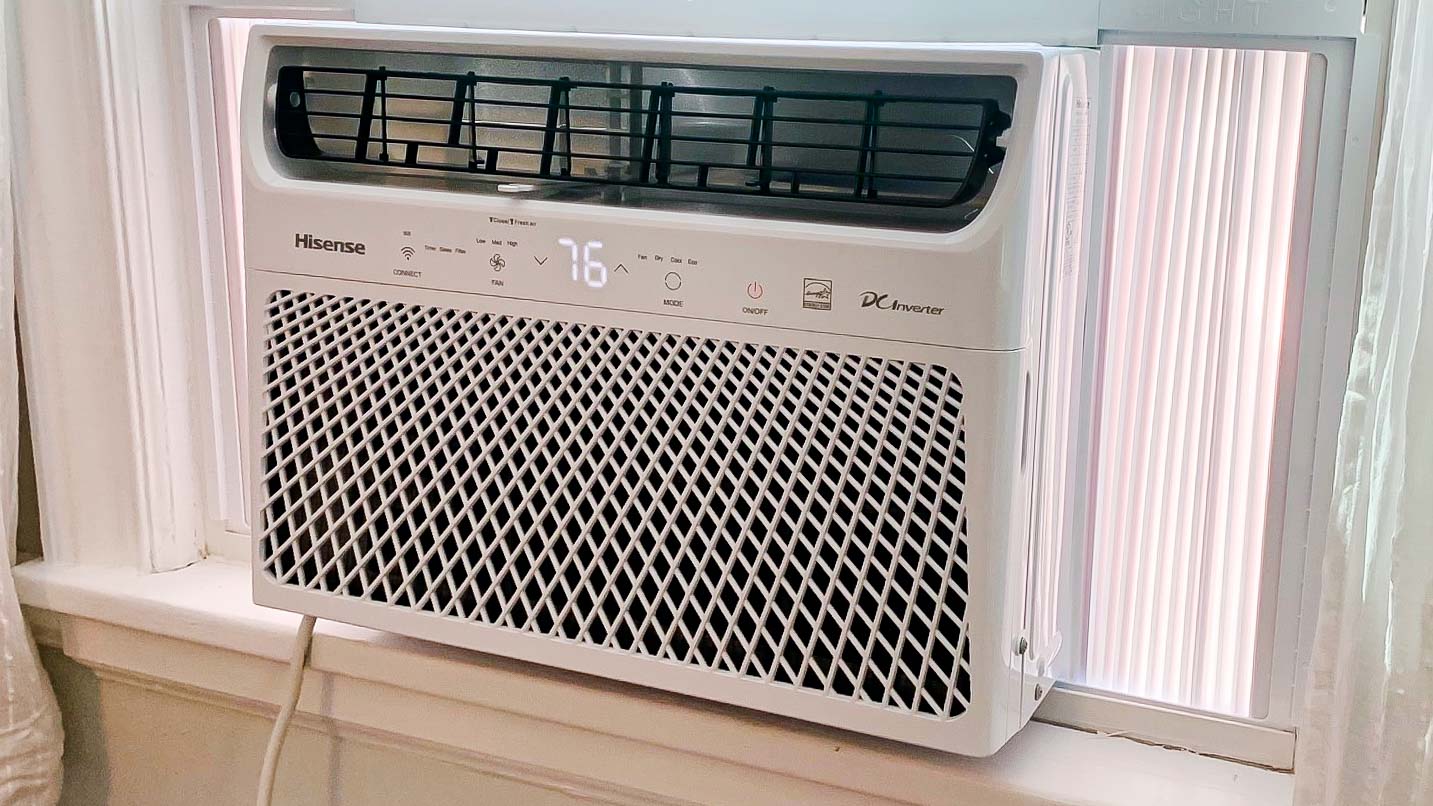
The bulk of the face of the Hisense A/C is a plastic mesh-like grille pattern that bears a passing resemblance to the front of a Lexus; whether that’s a good thing depends on your opinion of luxury cars.
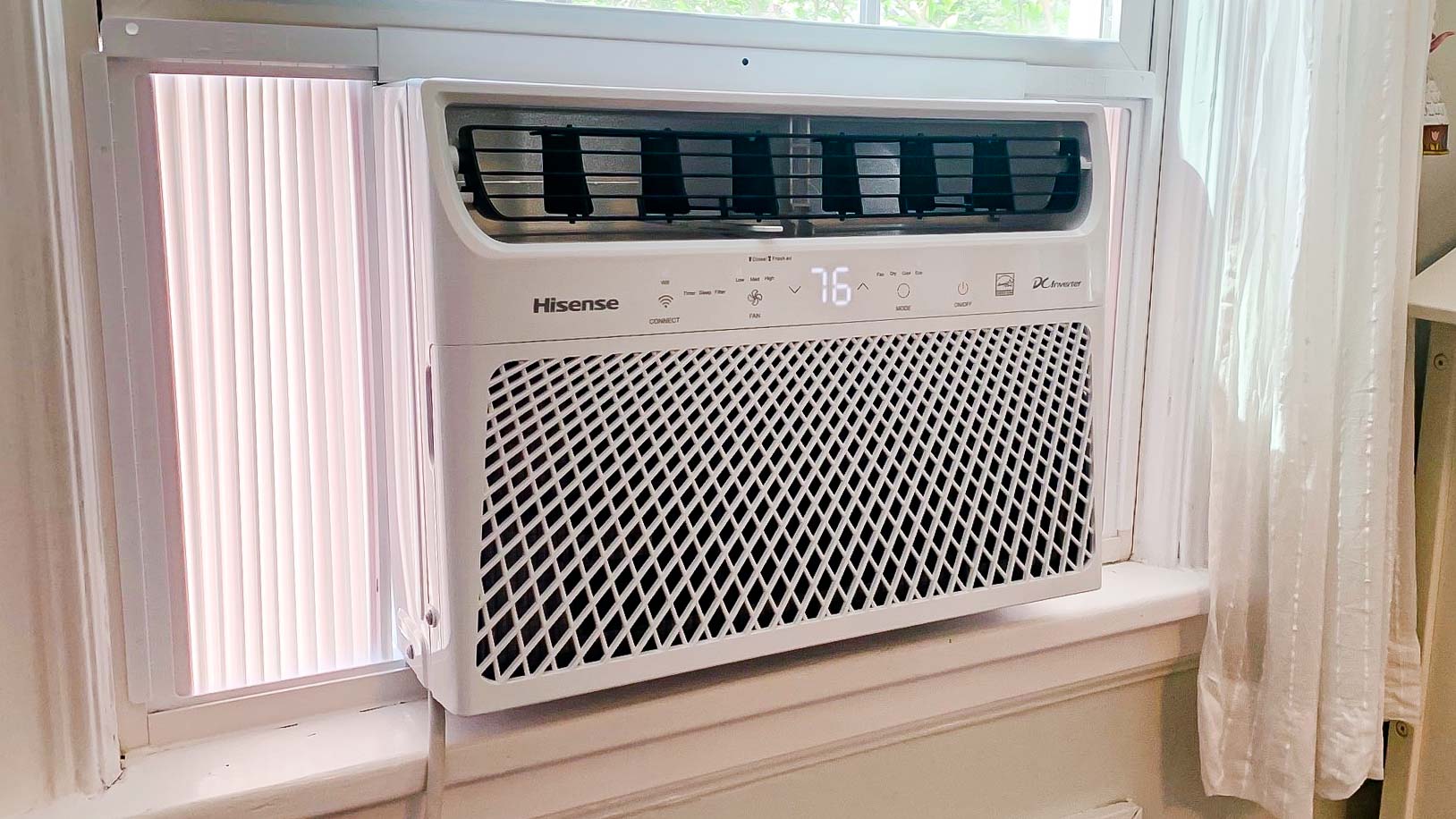
Like most window air conditioners, the grille can be removed to access the A/C’s nylon filter. (Knowing how to clean an air conditioner is crucial for keeping it running smoothly).
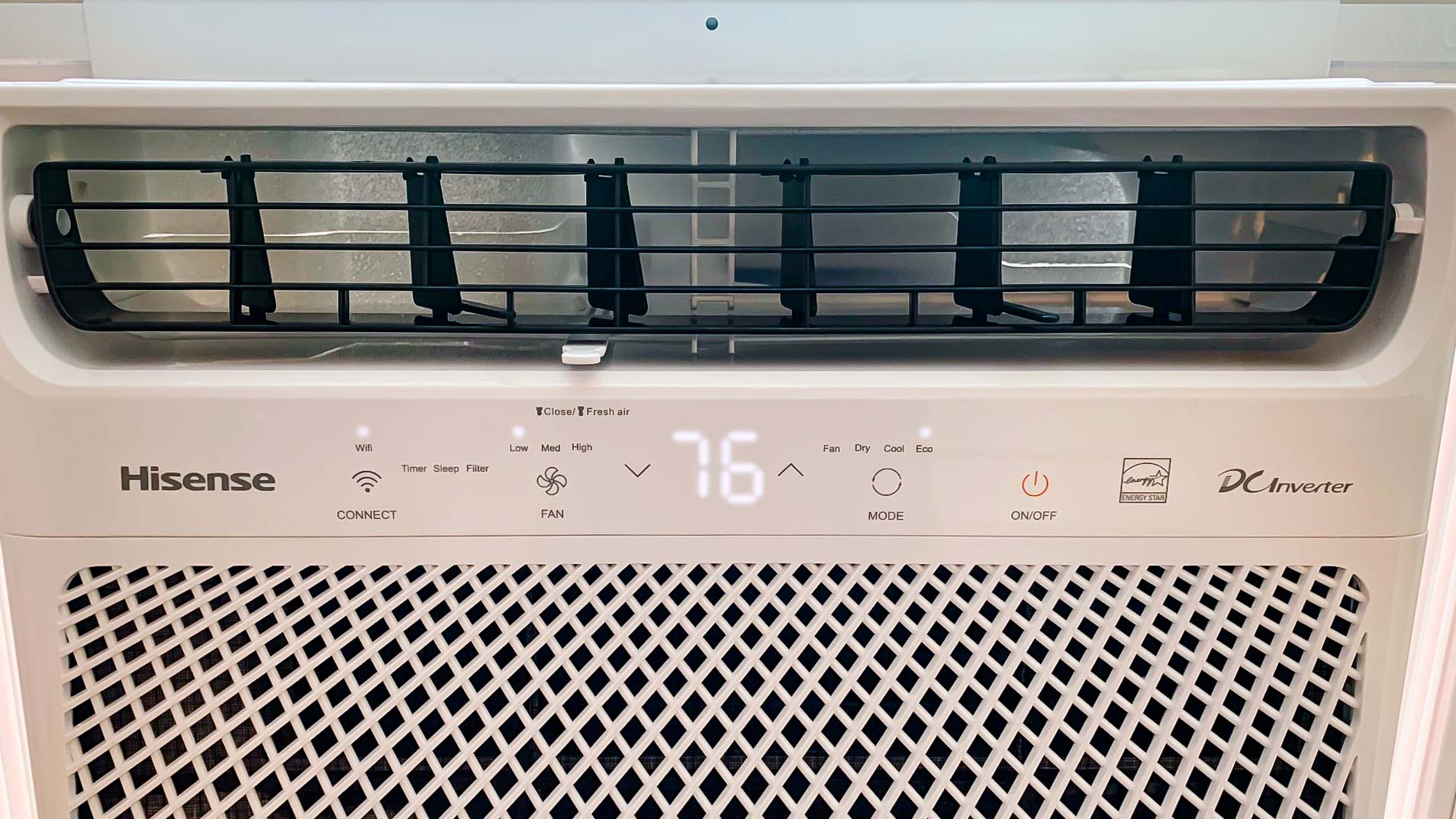
Above the grille is a touch-sensitive control panel, in the center of which are large numbers showing the temperature. At the top is a vent that blows cold air into the room.
Hisense Smart Air Conditioner review: Performance
I could barely believe my ears at how quiet the Hisense A/C was; in its ultra-quiet mode, I heard more noise coming from outside the window than I did from the air conditioner. From six feet away, I measured a sound level of 43dB when the Hisense was in its ultra-quiet mode. That’s not quite the 36dB as advertised from roughly the same distance (Hisense measures it from 1 meter), but still very good. By comparison, the Midea U, one of the best smart air conditioners, registered 46dB from six feet away at its lowest setting. However, when cranked to high, the Hisense registered 55 dB, compared to 49 for the Midea.
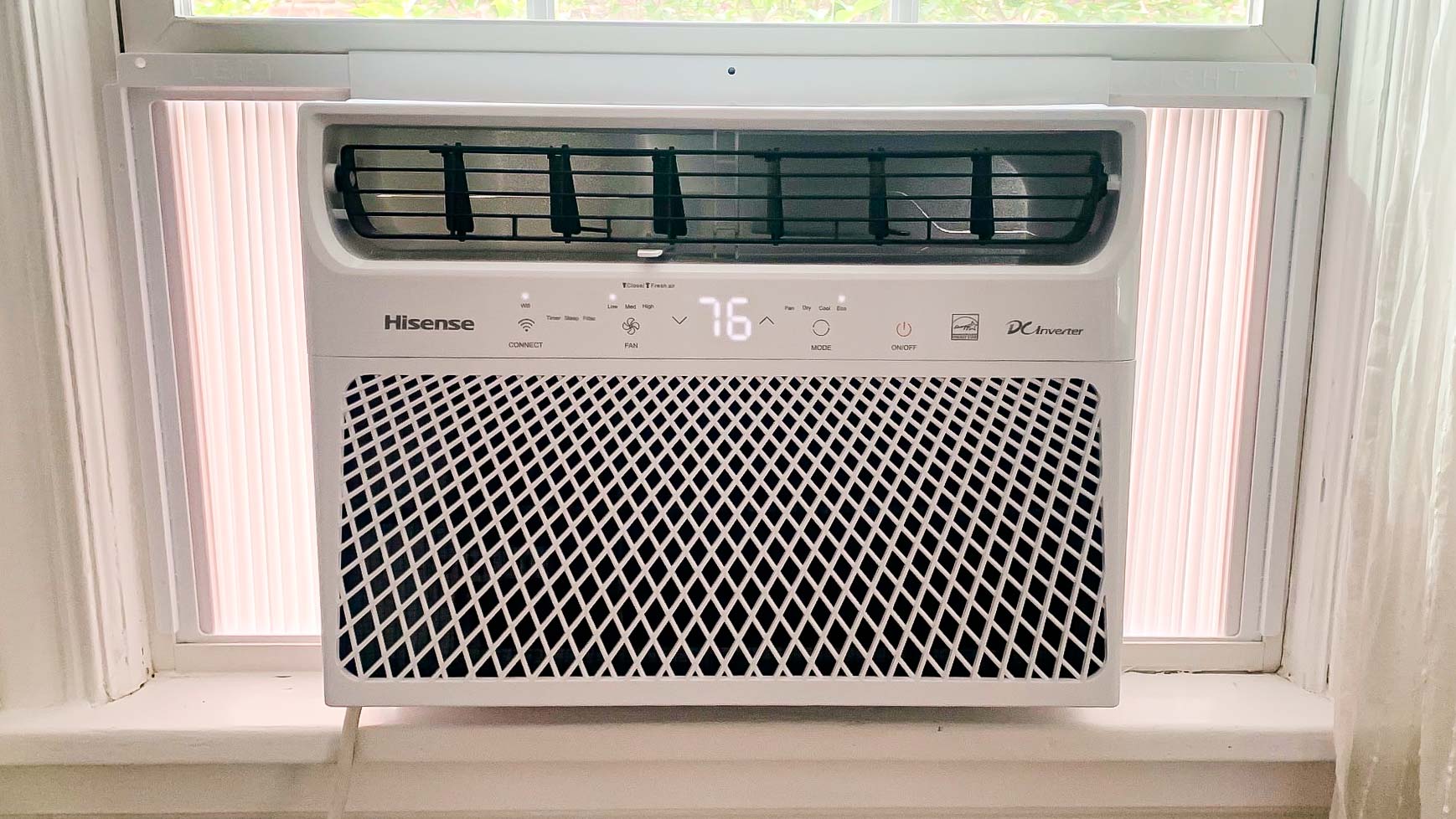
The Hisense quickly cooled my daughter’s 8 x 10-foot room, and kept it at a comfortable temperature throughout the night. More importantly, she didn’t complain about the noise.
Because it uses an inverter-style compressor, rather than the older-style rotary compressor, the Hisense A/C is also more efficient than most other window air conditioners. Its Energy Efficiency Rating (EER) of 15.4 is the best we’ve seen from a unit that we’ve tested. (The EER is one of the three things you should look for when shopping for a new air conditioner.)
Hisense Smart Air Conditioner review: App
Hisense’s app is basic, but functional. Confusingly, you don’t use one of the many Hisense AC apps in the App Store; instead, you have to download the generically named ConnectLife app to control the A/C from your phone.
The app is populated with a number of black and white squares, each of which control a different aspect of the air conditioner: Fan speed, quiet mode, temperature, and so on. It also provides a chart of your usage, in both minutes and electricity consumption.
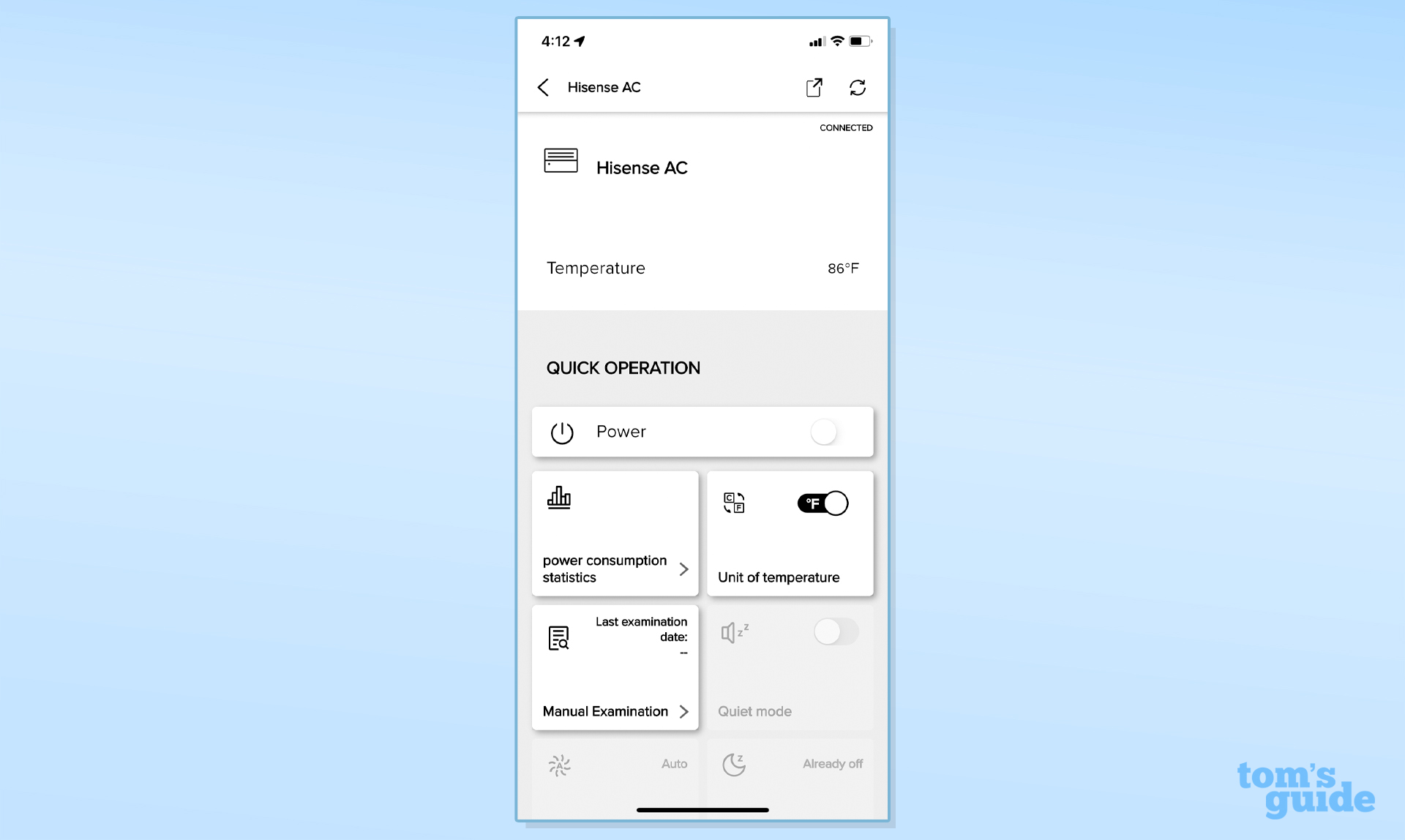
The app also lets you create automations for when the A/C should turn on and off. These can be based on the time and triggers, such as if the status of another connected appliance changes. However, in looking at the list of appliances – dishwasher, washing machine, refrigerator, etc. – it looks to be of limited utility.
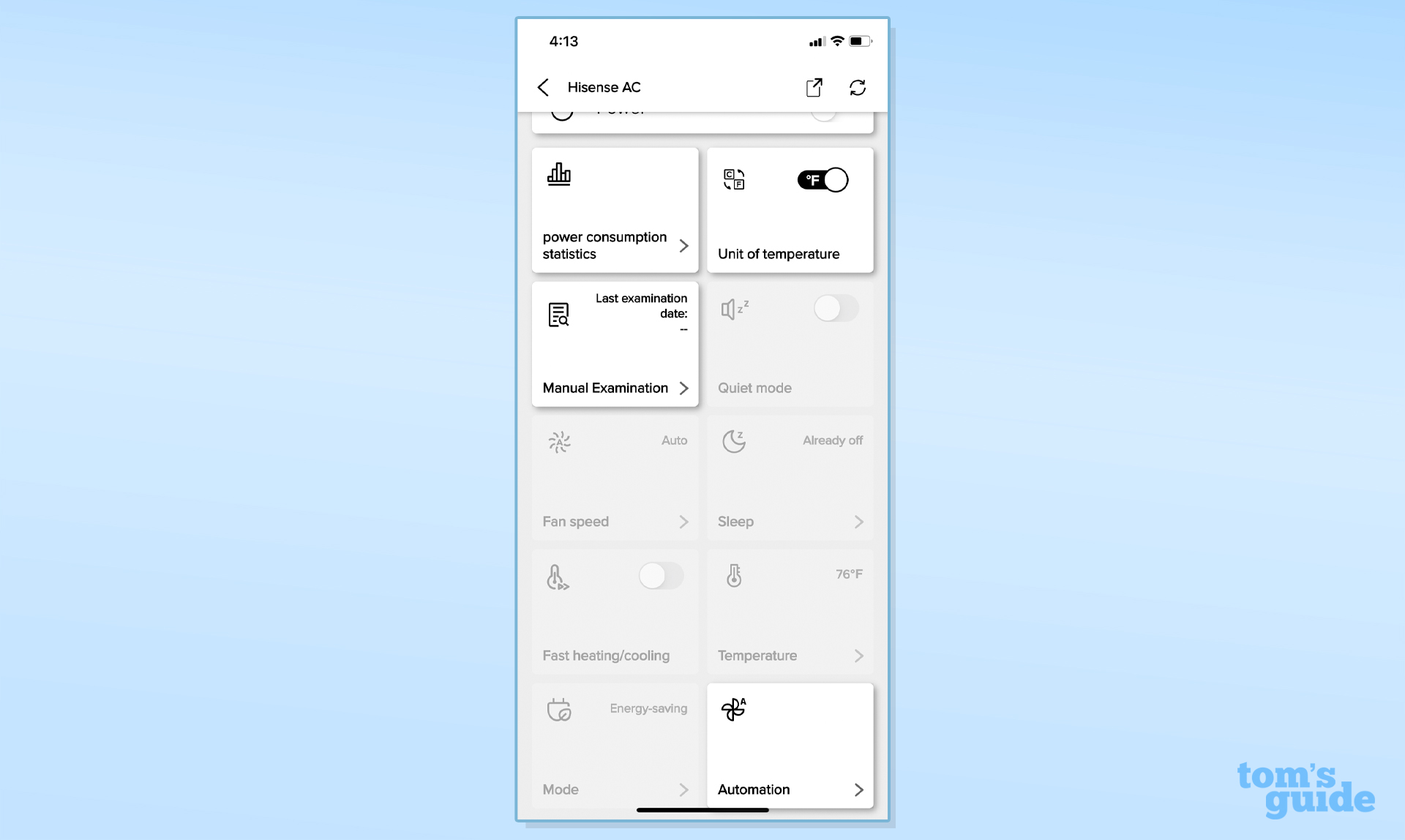
It’s far more useful to connect the A/C to Google Assistant or Alexa (which you can do through the Alexa app) and create routines there.
Hisense Smart Air Conditioner review: Verdict
The Hisense Smart Air Conditioner with ultra-quiet technology is indeed that — ultra quiet.
Among the best smart air conditioners, we still prefer the Midea U, as its design not only eliminates those unsightly baffles, but uses your window’s far more effective insulating properties, too. It’s also $50 less than the Hisense, and isn’t all that much louder. Still, the Hisense model is very quiet and efficient, and would make a good addition to any room where you need a window air conditioner.
For all the latest Technology News Click Here
For the latest news and updates, follow us on Google News.
